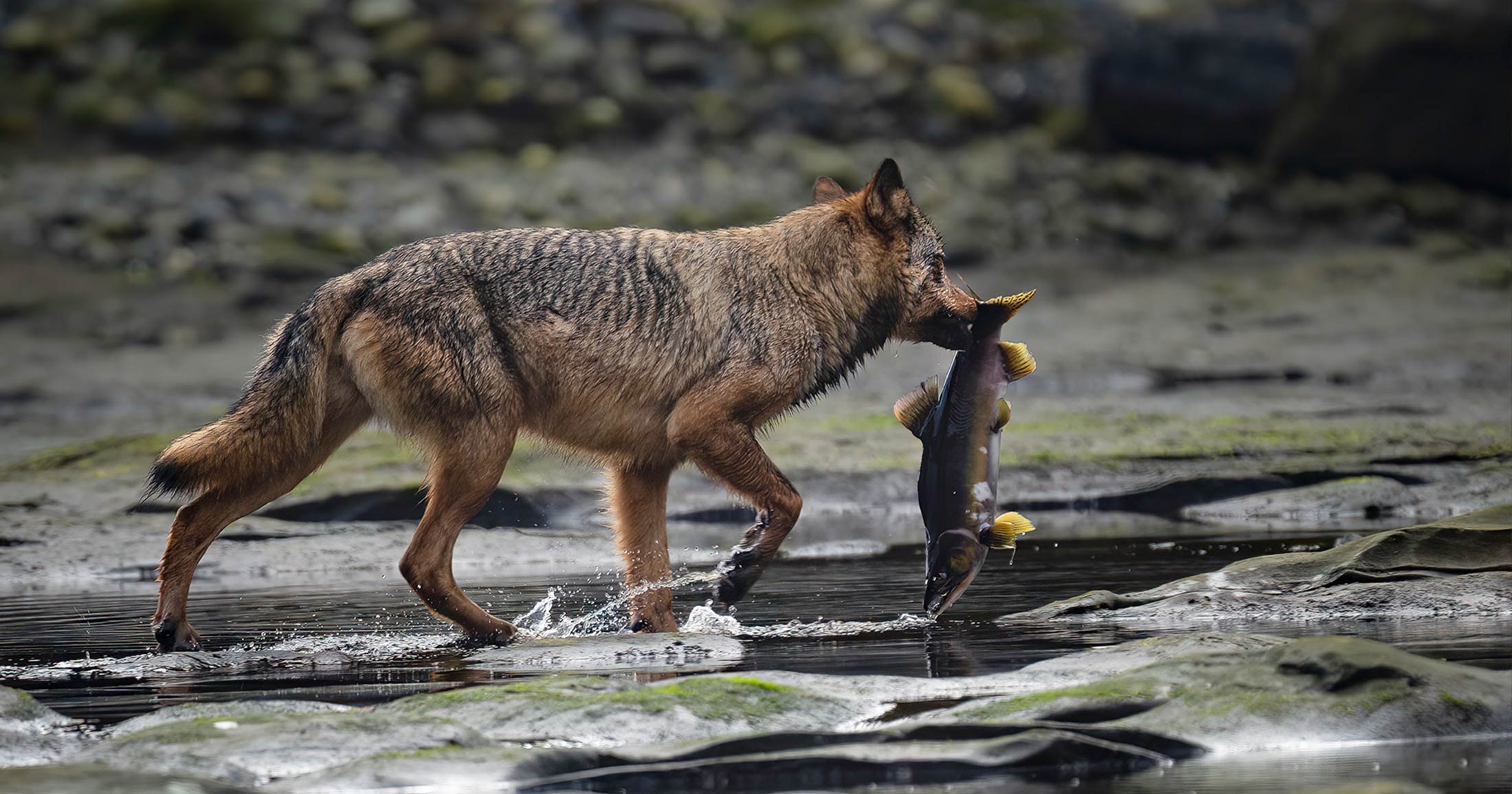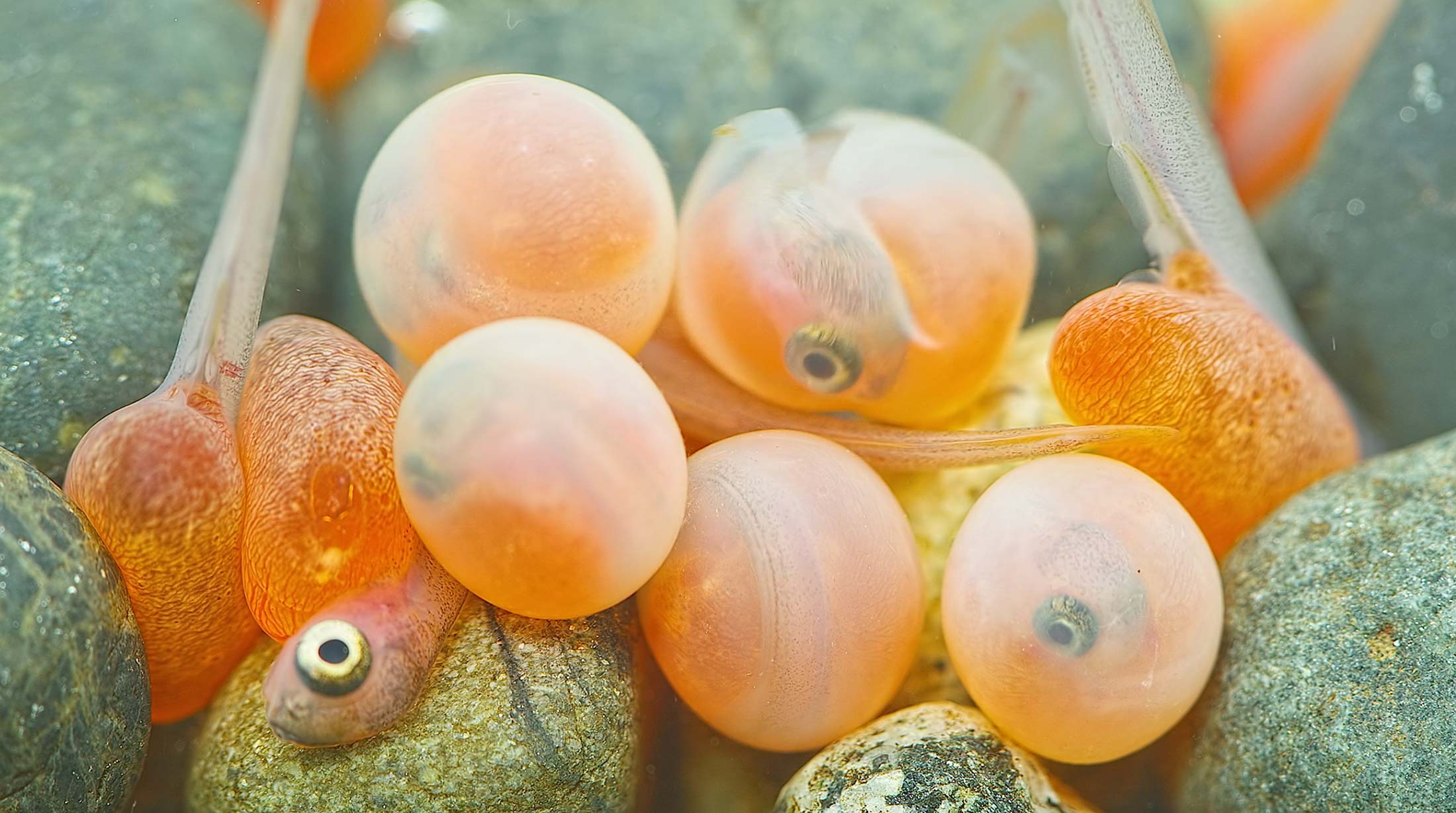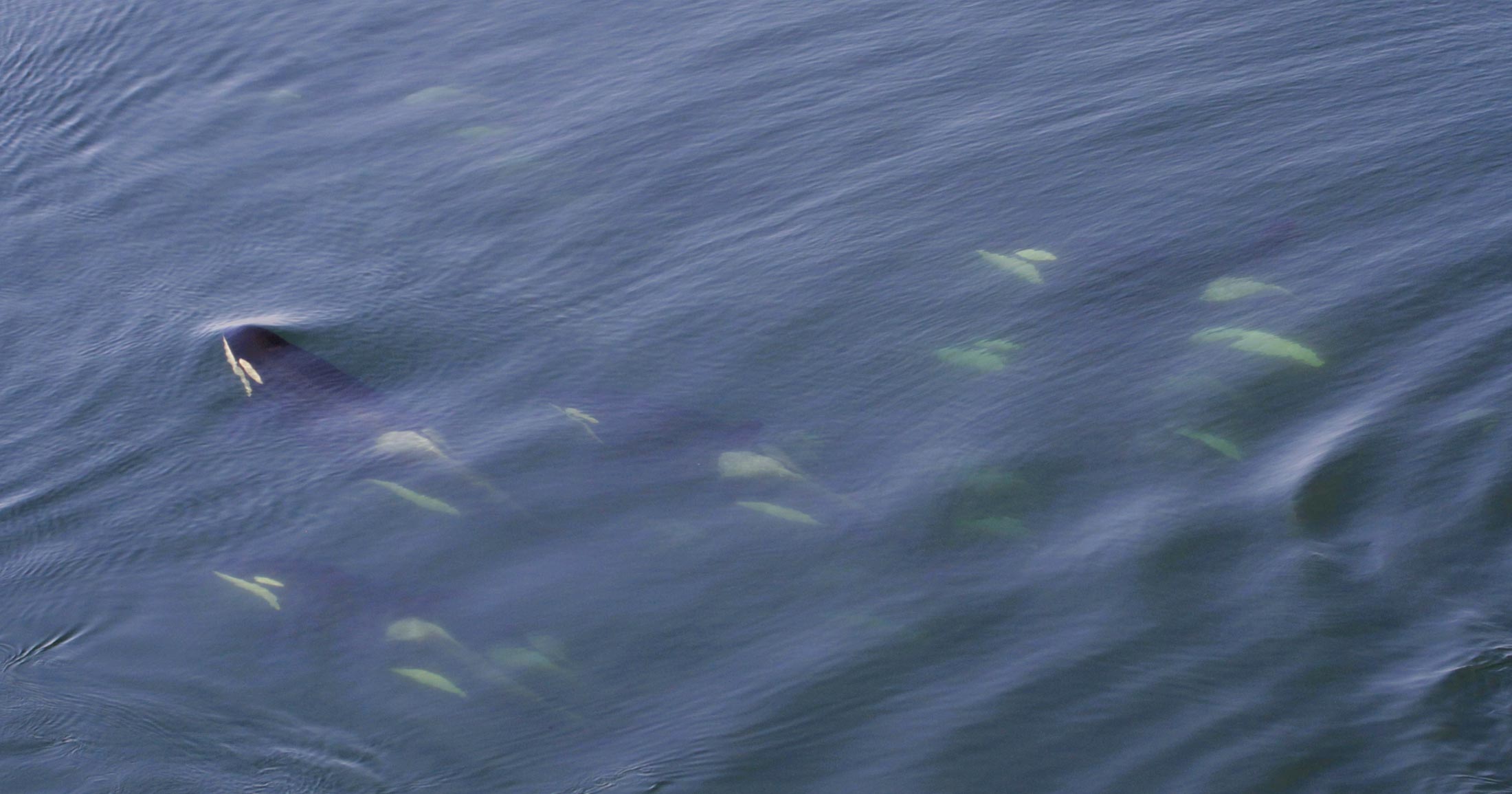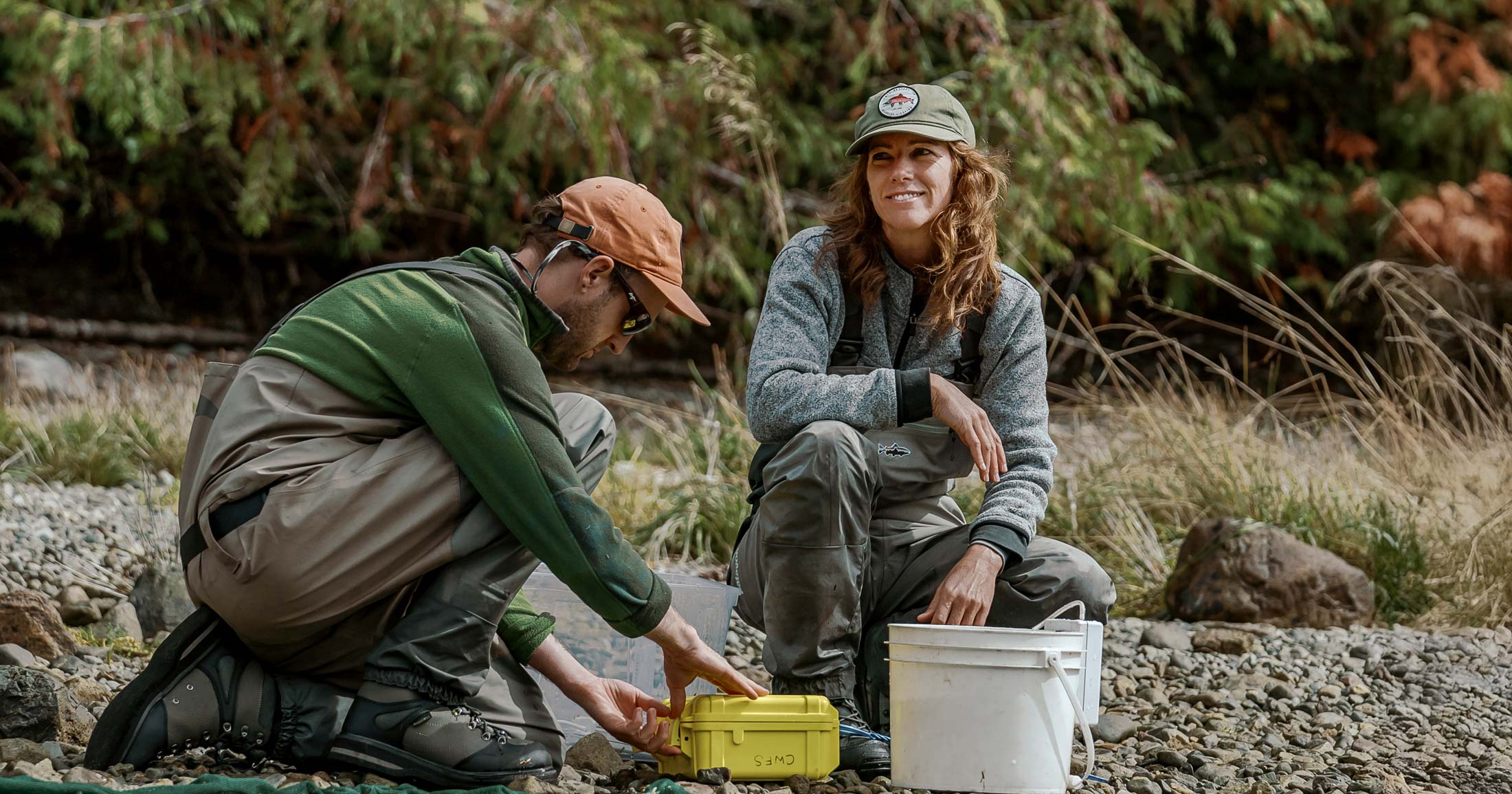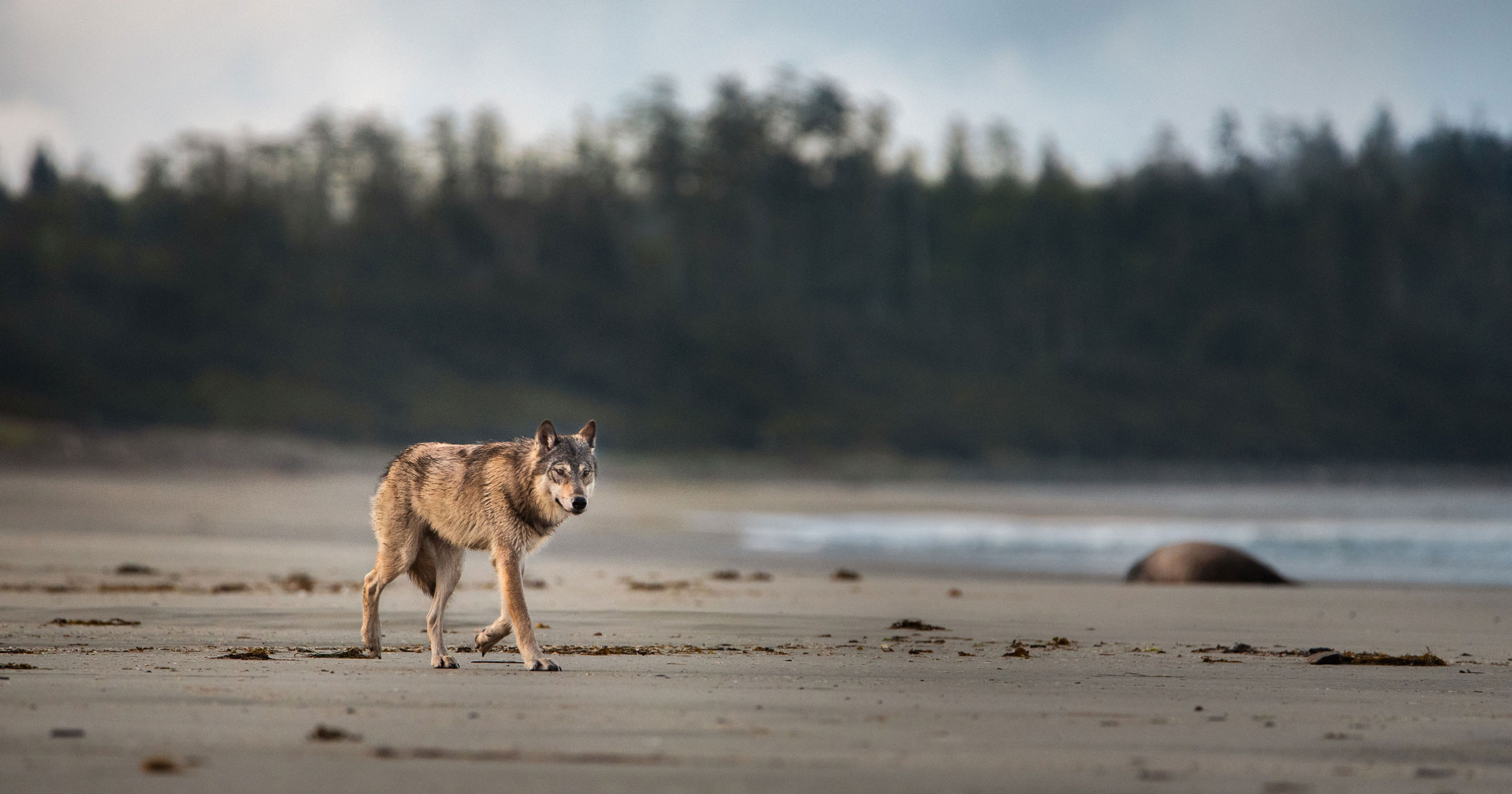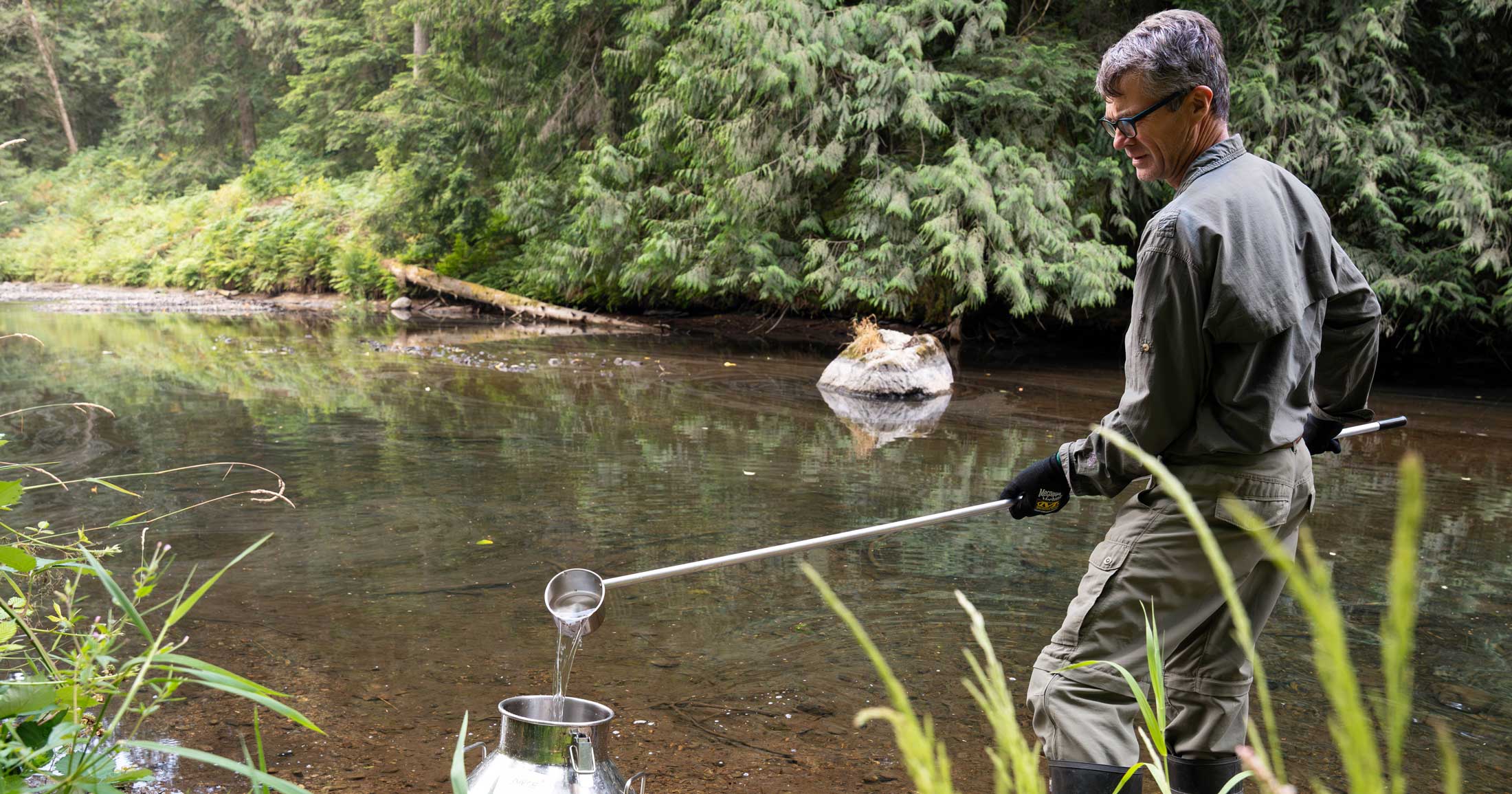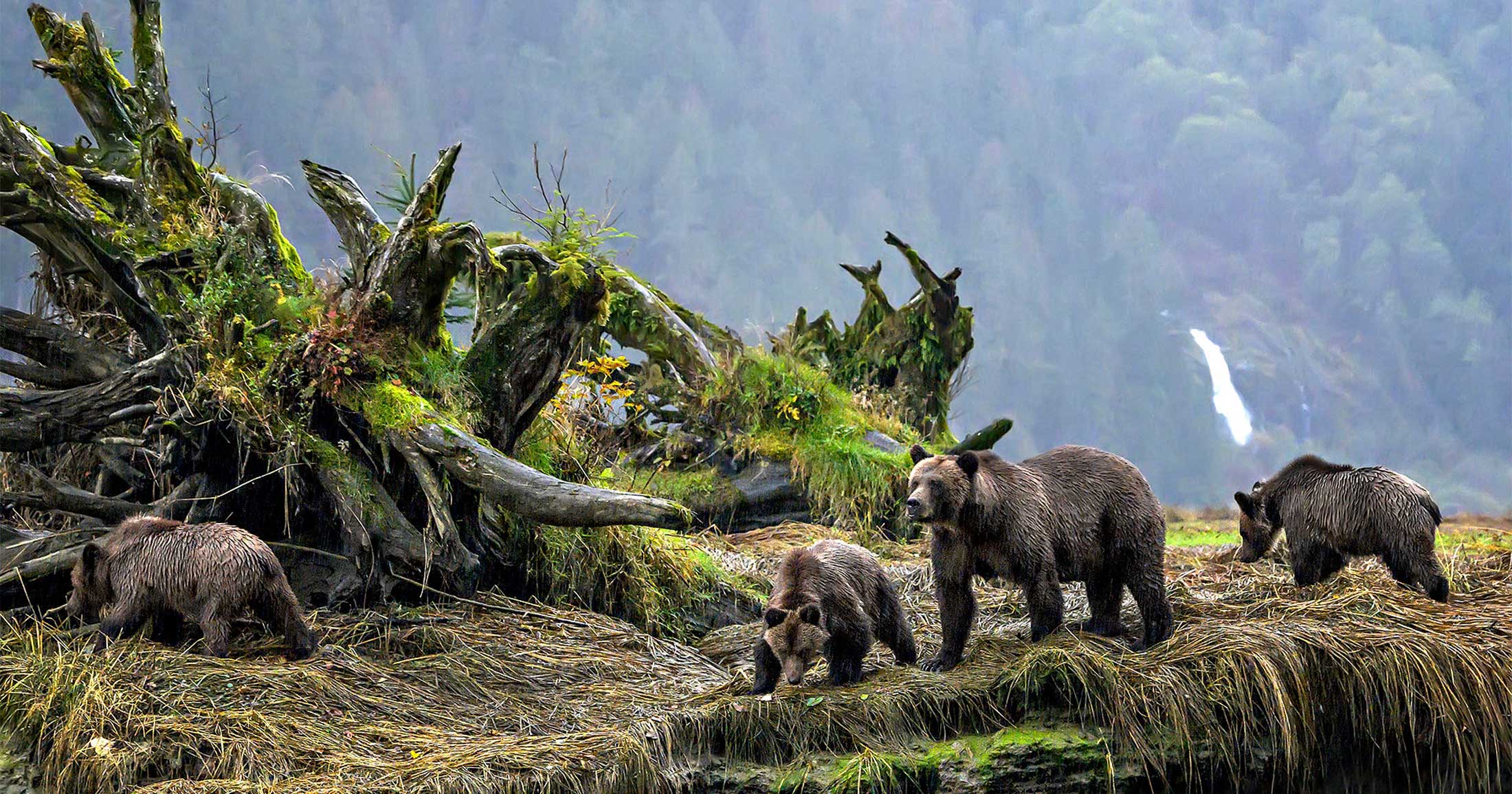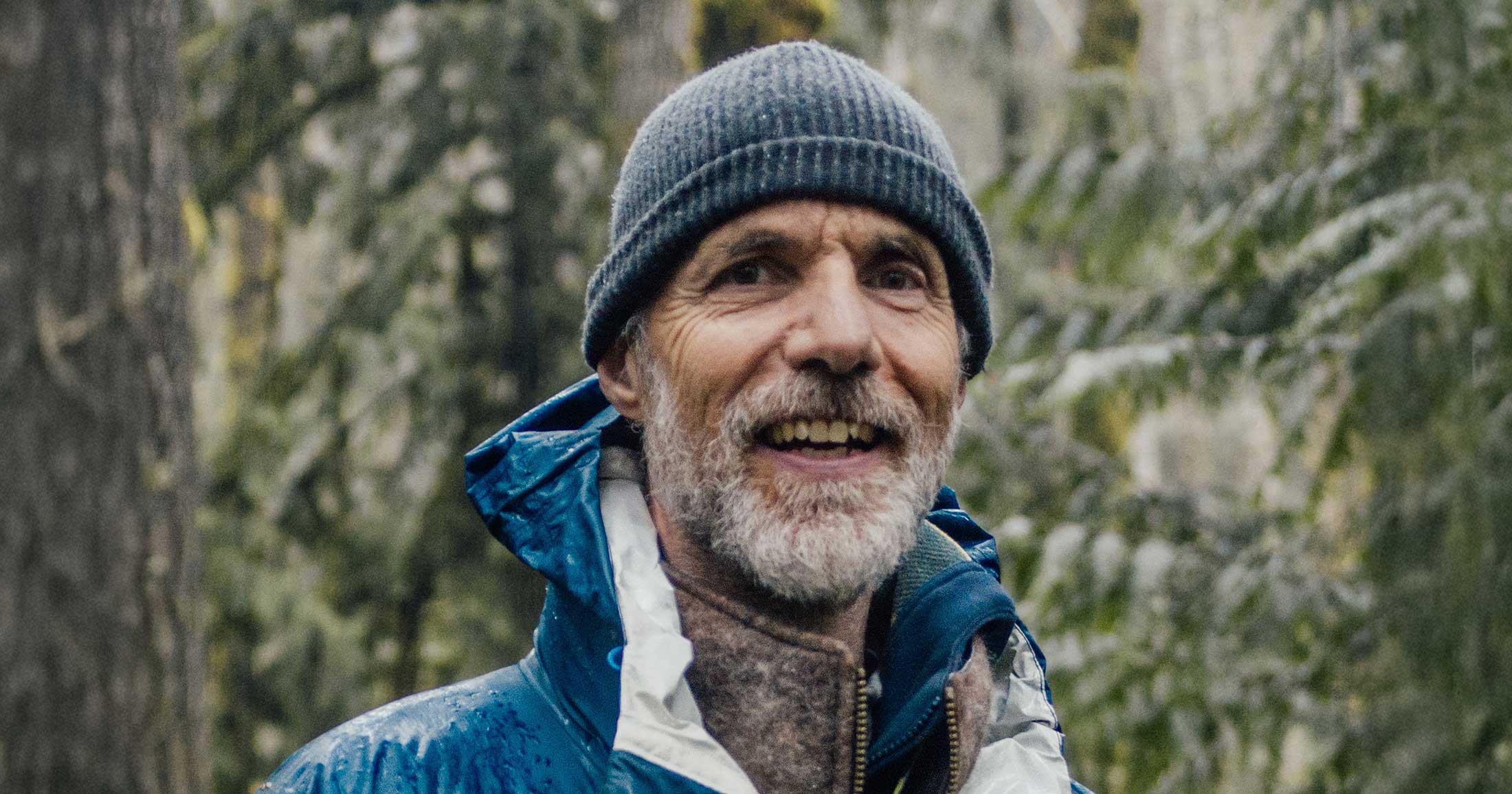Bridging science and ethics
Minimally invasive research techniques to study wolves.
Since 2022, we have been documenting the recolonization and recovery of wolves in a tributary of the Fraser River. Our focus is on the movements and behaviour of both individuals and packs in relation to the presence of other large carnivores, the abundance of their prey, and human influences such as roads and industrial forestry. Looking to 2024 and beyond, the data collected will be used to inform an Indigenous-led, holistic watershed approach to habitat restoration and conservation.
Information generated from long-term research and monitoring will also contribute to a broader study of wolves that is using minimally invasive research methods. This includes the use of fecal analyses to assess the genetic history, food choices, and seasonal diets of the wolves.
Using cameras, we have been able to identify and monitor individual wolves from their unique facial and pelage markings. In 2024, we will assess the responses of wolves (and other detected wildlife) to various market versions of commonly used motion-activated cameras. While we might assume that trail cameras don’t have an effect on wildlife, this is an assumption. Our observations indicate that wolves are aware of the presence of cameras. The results from this study will provide insights into potential welfare implications of the tested camera models, particularly for field researchers and hobbyists who aim to adopt humane approaches for monitoring wildlife.
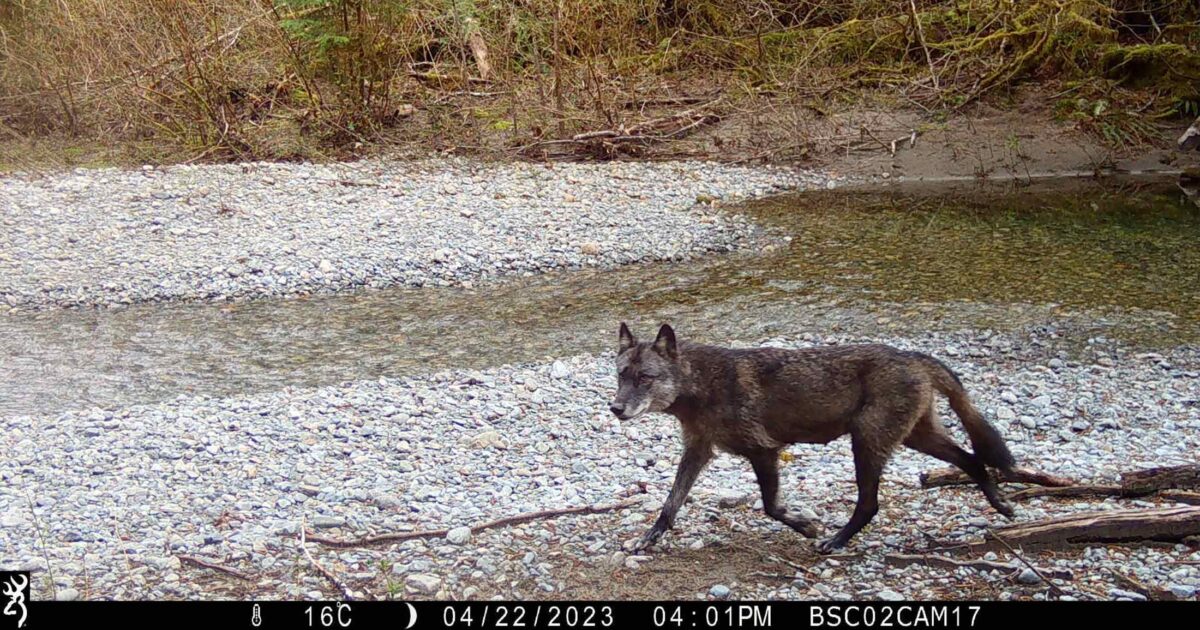
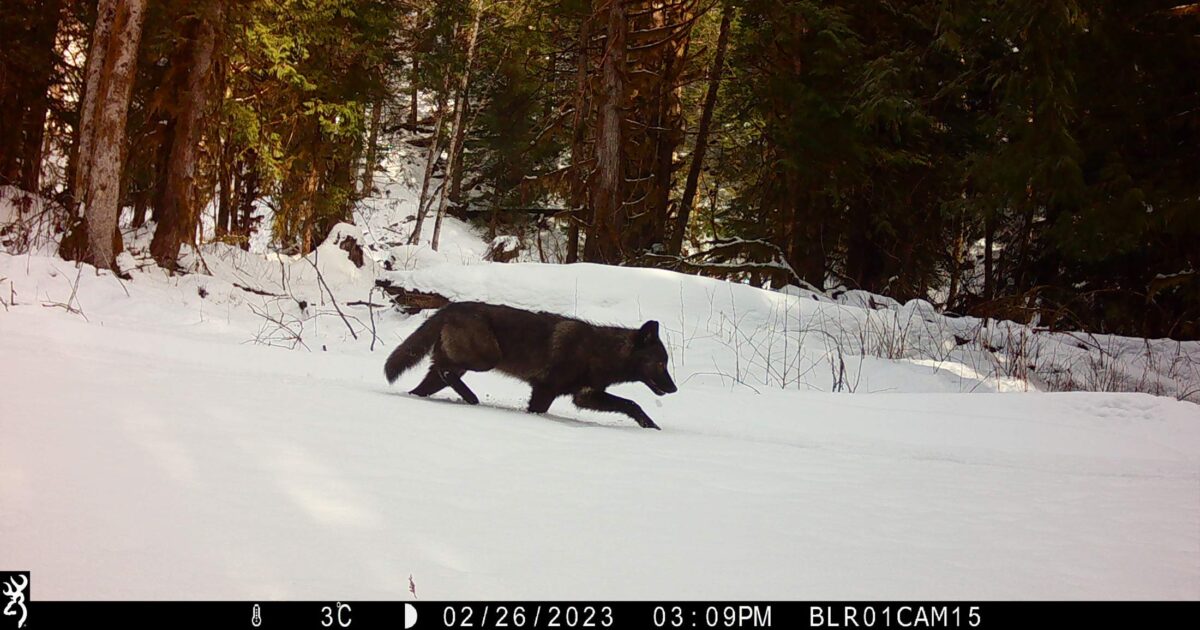
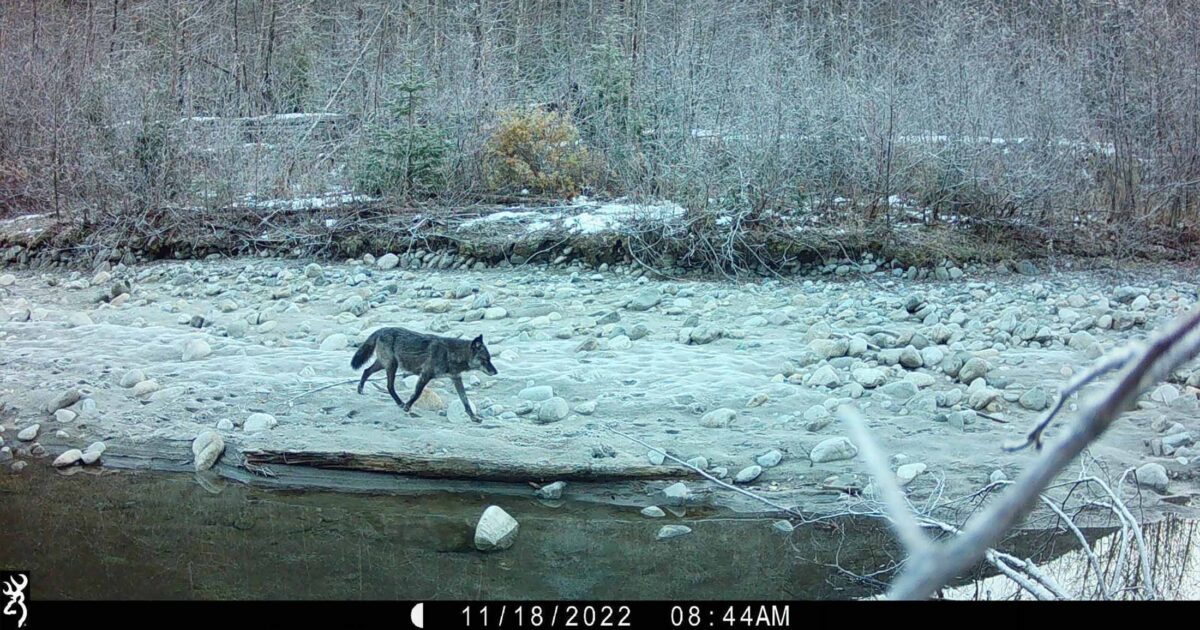
Beyond research, we have long recognized the need to bridge science and ethics in the work we do on behalf of wolves. In the spring of 2023, we launched the second season of Wolf School. In partnership with the US-based Wolf Conservation Center, we hosted a range of experts to explore the inextricable link between science and ethics in wolf research, policy, and conservation. We also kicked off a new series called Wolf Stories that aims to stimulate conversation and improve public understanding about the lives of wolves, and how environmental ethics should inform wolf management and conservation. We continue to expand this platform by including and valuing a diversity of perspectives on these issues.
This is an excerpt from our annual report, Tracking Raincoast into 2024.

You can help
Raincoast’s in-house scientists, collaborating graduate students, postdoctoral fellows, and professors make us unique among conservation groups. We work with First Nations, academic institutions, government, and other NGOs to build support and inform decisions that protect aquatic and terrestrial ecosystems, and the wildlife that depend on them. We conduct ethically applied, process-oriented, and hypothesis-driven research that has immediate and relevant utility for conservation deliberations and the collective body of scientific knowledge.
We investigate to understand coastal species and processes. We inform by bringing science to decision-makers and communities. We inspire action to protect wildlife and wildlife habitats.


